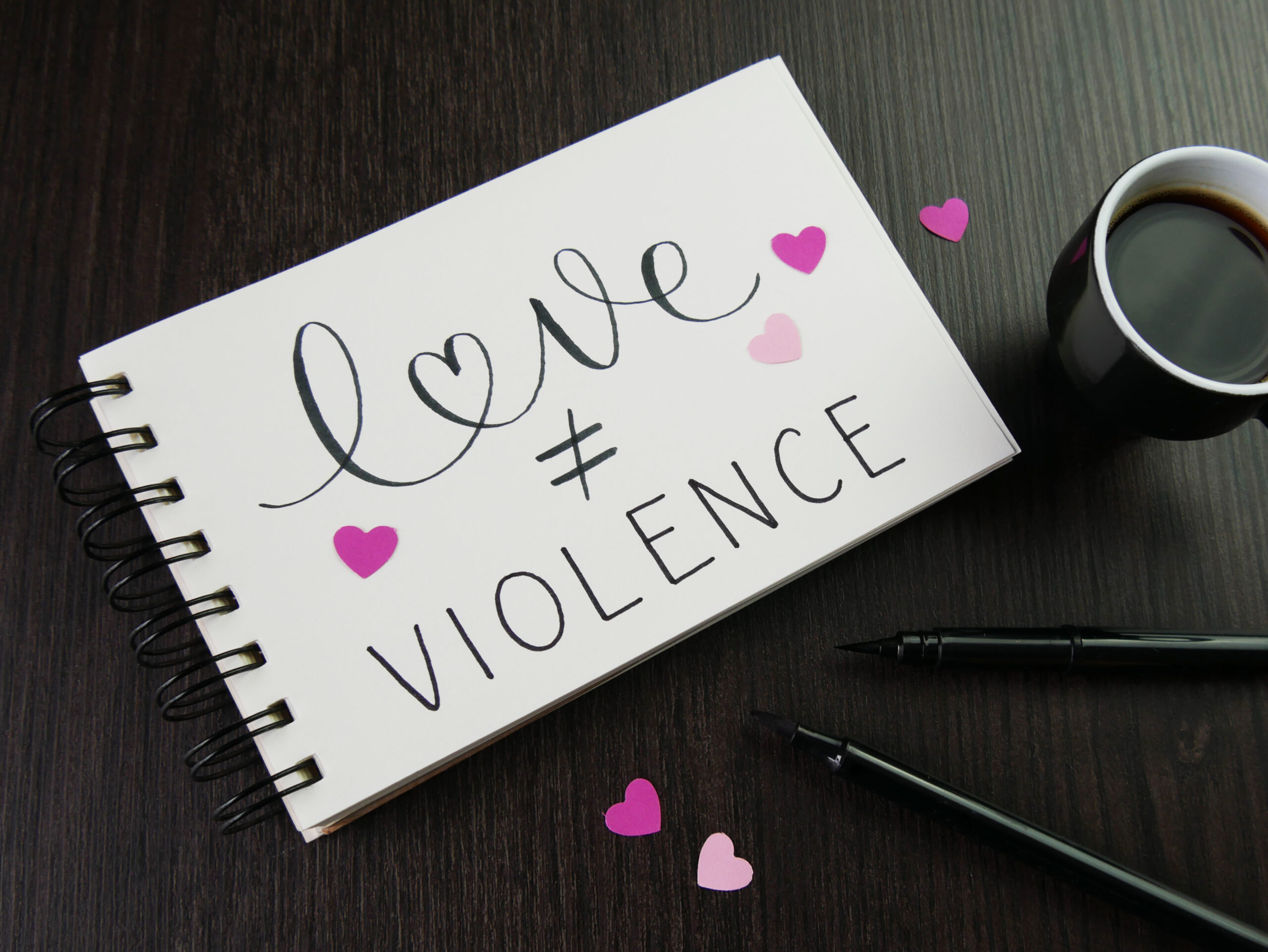At LATN, we specialize in Single Incident, Complex, Developmental & Relational trauma, providing tailored support for those navigating trauma complexities. Our therapists, extensively trained and experienced, offer a range of trauma-specific treatments, including traditional talk therapy, cognitive-behavioral therapy, humanistic-existential therapy, and more. We emphasize non-traditional approaches like developmental needs meeting strategy, DBT, and energy therapy. Our group therapy, limited to 6-8 members, ensures a supportive environment, while body therapies, creative therapies, and couples therapy address unique needs. For individuals with dissociative disorders, our treatments adhere to ISST-D guidelines, aiming to address the complex nature of their experiences. We also provide referrals to trauma-trained specialists in various fields. In extreme cases, dissociation can lead to Dissociative Identity Disorder (DID), and our specialized treatment focuses on addressing and managing this condition through therapeutic interventions.
Understanding Trauma
Trauma encompasses a broad range of events, such as child abuse, natural disasters, violent crimes, or loss of a major relationship, profoundly affecting personal relationships, daily functioning, and mental well-being.
Trauma encompasses a broad range of events, such as child abuse, natural disasters, violent crimes, or loss of a major relationship, profoundly affecting personal relationships, daily functioning, and mental well-being.
This complex experience can be categorized into Single Incident Traumas, Chronic Trauma, Developmental Trauma, and Relational Trauma.
The sense of control is disrupted during trauma, leading to overwhelming emotions. Coping varies based on early experiences, support networks, temperament, and learned skills, creating unique responses for each individual. It’s vital to understand that survivors aren’t responsible for the traumatic events they endure; blame lies with the perpetrators or external circumstances. Eliminating victim blame is crucial, highlighting the uncontrollable nature of traumatic events and fostering empathy and support for survivors.


Types of Trauma
Single Incident, Complex, Developmental & Relational – These trauma categories encompass a range of experiences, and at LATN, we specialize in providing tailored support for individuals navigating the complexities of trauma.
These trauma categories encompass a range of experiences, and at LATN, we specialize in providing tailored support for individuals navigating the complexities of trauma.
Single Incident Trauma
Single Incident Trauma results from a singular, often life-threatening event, overwhelming coping mechanisms and causing lingering symptoms like nightmares and emotional distress. Examples include rape, mugging, and car accidents.
Complex Trauma
Complex Trauma involves prolonged exposure to severe stressors, leading to various psychological defenses and impacting life facets such as relationships, work, and mental health. Examples include childhood abuse, terrorism, and ongoing medical problems.
Developmental Trauma
Developmental Trauma stems from adverse experiences during childhood, affecting emotional regulation and interpersonal relationships. Examples include childhood abuse, neglect, and the failure to form positive social connections.
Relational Trauma
Relational Trauma arises from distressing interpersonal experiences, impacting one’s ability to form healthy relationships. Examples include parental divorce, betrayal, and adoption/foster care.
Human Trafficking
LATN therapists specialize in supporting survivors of human trafficking, offering personalized and compassionate care. With a focus on trauma-informed methods, our dedicated team helps individuals rebuild their lives, fostering resilience and empowerment. We stand alongside survivors, providing expert guidance on their journey to recovery.
LATN therapists specialize in supporting survivors of human trafficking, offering personalized and compassionate care. With a focus on trauma-informed methods, our dedicated team helps individuals rebuild their lives, fostering resilience and empowerment. We stand alongside survivors, providing expert guidance on their journey to recovery.
Instances of human trafficking include but are not limited to:
Sex Trafficking
Labor Trafficking
Child Trafficking
Forced Marriage
Organ Trafficking
Debt Bondage
Domestic Servitude
Child Soldiering
Trafficking for Begging
Illegal Adoption


Symptoms of Trauma
LATN therapists can help identify and mitigate trauma symptoms including arousal, re-experiencing, avoidance and dissociation.
LATN therapists can help identify and mitigate trauma symptoms including arousal, re-experiencing, avoidance and dissociation.
Arousal
Arousal, as a symptom of trauma, encompasses a range of heightened reactions and responses that occur in individuals who have experienced traumatic events.
-Difficulty concentrating
-Exaggerated response to things that startle you
-Excess awareness (hypervigilence)
-Irritability or outbursts of anger
-Sleeping difficulties
-Survivor’s Guilt
-Night Terrors
-Nightmares
-Panic and Anxiety Attacks
-Intensified Anxiety
Re-Experiencing
Re-Experiencing, as a trauma symptom, involves the persistent recurrence of distressing and intrusive episodes, memories or images related to the traumatic event.
-Flashback episodes, where the event seems to be happening again and again
-Recurrent distressing memories of the event
-Repeated dreams of the event
-Physical reactions to situations that remind you of the traumatic event
Avoidance & Dissociation
Avoidance and Dissociation, as trauma symptoms, encompass various manifestations that revolve around emotional detachment and efforts to distance oneself from the traumatic event.
-Emotional “numbing,” or feeling as though you don’t care about anything
-Depression
-Feelings of detachment
-Inability to remember important aspects of the trauma
-Lack of interest in normal activities
-Less expression of moods
-Staying away from places, people, or objects that remind you of the event
-Checking out, feeling spacey
-Multiplicity (severe childhood trauma/torture cases)
Treatment Methods
We offer a range of trauma-specific treatments delivered by therapists with extensive experience and training in working with trauma survivors.
We offer a range of trauma-specific treatments delivered by therapists with extensive experience and training in working with trauma survivors. Some of the trauma treatment strategies we employ include:
Traditional Talk Therapy
Cognitive-Behavioral Therapy (CBT)
Humanistic-Existential Therapy
Object Relations Therapy
Narrative Therapy
Rational Emotive Therapy
Reality Therapy
Non-Traditional Talk Therapy
Developmental Needs Meeting Strategy
Dialectic Behavioral Therapy (DBT)
Group Therapy
Closed Process Group Therapy (groups are limited to 6-8 members and people commit to attending each group for some time)
Body Therapies
Sensorimotor Psychotherapy
Eye Movement Desensitization and Reprocessing Therapy (EMDR)
Process Oriented/Synthesis Therapy
Creative Therapy
Art Therapy
Sandplay Therapy
Play Therapy
Bibliotherapy
Game Therapy
Writing/Creative Expression
Energy Therapy
Quantum Energy
TAT
Couples Therapy for Couples with Trauma Issues
A specialized form of couples therapy designed to address the unique challenges and dynamics that arise when one or both partners have experienced trauma. This therapy aims to help couples navigate the impact of trauma on their relationship, improve communication, and foster healing and intimacy.
Dissociative Disorder-Specific Treatment
Therapeutic interventions and approaches adhere to the guidelines established by the International Society for the Study of Trauma and Dissociation (ISST-D) for addressing dissociative disorders. These treatments are specifically tailored to individuals with dissociative disorders and aim to address the complex and often fragmented nature of their experiences.
We have excellent referral sources for trauma-trained psychiatrists, medical doctors, gynecologists, alternative health practitioners, acupuncturists, addiction specialists, and eating disorder specialists.


EMDR
Our skilled therapists utilize eye movement desensitization and reprocessing (EMDR) to guide patients through a comprehensive process of reprocessing distressing memories, allowing them to integrate these experiences in a healthier way. By encouraging specific eye movements during targeted phases of therapy, EMDR facilitates the brain’s natural ability to heal and adapt.
Our skilled therapists utilize eye movement desensitization and reprocessing (EMDR) to guide patients through a comprehensive process of reprocessing distressing memories, allowing them to integrate these experiences in a healthier way. By encouraging specific eye movements during targeted phases of therapy, EMDR facilitates the brain’s natural ability to heal and adapt.
This technique has shown remarkable success in helping individuals overcome the lingering effects of trauma, providing a pathway towards emotional resilience and restored well-being.
In a session, you connect physical sensations and emotions to the memory, while focusing on bilateral eye movement induced by an external stimulus, often the therapist’s finger.
EMDR therapy typically spans 6 to 12 sessions, lasting 60 to 90 minutes each. Single incident traumas usually require 8-12 sessions of 90 minutes, while more complex traumas may necessitate a more extended treatment of 12-18 months.
Dissociation & Signs
Dissociation is a natural defense mechanism, expressed through everyday experiences like daydreaming. In therapy, controlled dissociation can be beneficial, aiding in self-exploration. Therapists may use techniques like sand tray therapy. Yet, an imbalance, especially involuntary dissociation causing a persistent disconnection from reality, can be distressing.
Dissociation is a natural defense mechanism, expressed through everyday experiences like daydreaming. In therapy, controlled dissociation can be beneficial, aiding in self-exploration. Therapists may use techniques like sand tray therapy. Yet, an imbalance, especially involuntary dissociation causing a persistent disconnection from reality, can be distressing.
At LATN, we guide individuals to harness dissociation’s growth potential while addressing unhealthy patterns for a balanced approach. If you’re experiencing these symptoms and they interfere with your daily life, seeking support from a mental health professional can be beneficial:
Brain Fog
Feeling like you’re constantly in a mental fog, making it challenging to concentrate or stay present.
Time Loss
Experiencing periods where time seems to disappear, and you can’t account for what happened during those intervals.
Auditory Hallucinations
Hearing voices inside your head, as if there’s an internal conversation or dialogue happening.
Detached Observer
Sensing that you’re merely an observer of your own life, as if you’re watching a movie rather than actively participating.
Partial Presence
Feeling like only a part of you is engaged or present in a situation, while the rest of you feels disconnected or absent.
Memory Gaps
Discovering evidence of actions or written material that you don’t remember doing or creating, sometimes even finding it in handwriting that doesn’t seem like your own.
Lost Time
Frequently losing large chunks of time or having periods where you can’t account for your actions or experiences.


Levels of Dissociation
We can help you identify the level of dissociation you may be experiencing, from dissociation in everyday life, dissociation stemming from trauma & severe traumatic dissociation.
We can help you identify the level of dissociation you may be experiencing, from dissociation in everyday life, dissociation stemming from trauma & severe traumatic dissociation.
Dissociation in Everyday Life
-Daydreaming
-Occasional drifting into imaginative thoughts or fantasies during the day.
-Spacing Out
-Moments when attention becomes unfocused, akin to being lost in thought.
-Fantasy
-Engaging in vivid mental scenarios or imaginary worlds as a form of distraction.
Dissociation Stemming from Trauma
Numbness
Emotional detachment and a sense of emotional numbing as a response to traumatic events.
Deadened Emotions
A noticeable decrease in the ability to feel or express emotions.
Leaving One’s Body
Experiencing detachment from one’s physical self during traumatic situations.
Severe Traumatic Dissociation
Derealization
Constantly feeling a sense of dissociation from reality, where surroundings seem surreal.
Depersonalization
Losing the feeling of being connected to oneself or the body.
Emotion States That Are Fragments
Specific emotions or emotional reactions becoming fragmented.
Forming Separate Identities
Developing distinct self-states to handle various aspects of life.
Partially Formed Identities with Specific Roles
Fragmented-self states that take on distinct roles.
Fully Formed Identities
Creating complete and separate identities within one’s psyche.
Extreme Dissociation, DID, and Multiple Identities
In its most extreme form, dissociation can lead to the creation of multiple, distinct self-identities.
In its most extreme form, dissociation can lead to the creation of multiple, distinct self-identities.
This phenomenon typically arises in response to horrifying torture and severe abuse during childhood. Instead of merely dissociating from one’s body, separate and fully developed identities emerge to endure and manage the abuse.
Children subjected to extreme trauma might form several personalities to handle various roles and cope with the abuse. The number of personality states often correlates with the severity of abuse endured. Severe traumatic dissociation experienced in childhood can persist into adulthood unless treated through therapy.


Dissociation Treatment
Dissociation, especially when it significantly impacts your daily life, can be effectively addressed through therapy. Traumatic dissociation often arises from overwhelming traumatic experiences and serves as a self-protective mechanism. However, to move forward and find healing, it’s crucial to reintegrate the painful feelings and memories associated with past trauma into your sense of self.
Dissociation, especially when it significantly impacts your daily life, can be effectively addressed through therapy. Traumatic dissociation often arises from overwhelming traumatic experiences and serves as a self-protective mechanism. However, to move forward and find healing, it’s crucial to reintegrate the painful feelings and memories associated with past trauma into your sense of self. Therapy plays a pivotal role in trauma recovery, helping survivors:
Integrate Traumatic Material
By re-integrating traumatic memories and emotions, therapy contributes to a more coherent sense of self.
Enhance Well-Being
It improves overall well-being by addressing the effects of trauma and dissociation.
Emotion Management
Therapy equips individuals with strategies to manage difficult emotions that may resurface when unintegrated trauma is triggered.
Prevent Interference
Importantly, therapy helps prevent past trauma from negatively impacting present-day life, allowing survivors to move forward with greater resilience.
Therapy emerges as the most potent tool for working through trauma and its associated dissociation. A holistic approach to trauma therapy often combines several methods:
Talk Therapy
Traditional talk therapy provides a safe and supportive environment to discuss experiences, emotions, and memories connected to dissociation. It promotes understanding and coping.
Creative Therapy
Creative therapies like art or music therapy offer alternative channels for expressing and exploring the emotions tied to dissociation.
Sandplay Therapy
This unique approach encourages the use of symbols and figurines in a sandbox to represent and work through feelings and experiences, aiding in resolving dissociation.
EMDR (Eye Movement Desensitization and Reprocessing)
EMDR is a specialized therapy designed to process traumatic memories and alleviate associated symptoms, including dissociation.
Body Movement Therapy
Techniques like yoga or dance therapy help individuals reconnect with their bodies, fostering a sense of grounding and reducing dissociation.
DID Treatment
Healing from Dissociative Identity Disorder (DID) is a unique journey that requires specialized therapy. At LATN, our therapists are trained in the treatment of Dissociative Disorders through the International Society for the Study of Trauma and Dissociation (ISST-D), and we follow their guidelines for diagnosis and treatment.
Healing from Dissociative Identity Disorder (DID) is a unique journey that requires specialized therapy. At LATN, our therapists are trained in the treatment of Dissociative Disorders through the International Society for the Study of Trauma and Dissociation (ISST-D), and we follow their guidelines for diagnosis and treatment. While every individual’s healing path is unique, here’s a general outline of what you can expect when working with one of our therapists at LATN:
Step 1: Establishing Safety
We understand that building trust and emotional safety is paramount, especially for individuals who have experienced significant trauma. Our initial sessions are dedicated to creating a safe and trusting therapeutic environment.
During this phase, we’ll work on getting to know each other, setting therapy boundaries, and addressing practical aspects related to Dissociation.
Skill-building and practicing new coping strategies are also key components. We’ll begin the process of mapping your internal system and getting to know different alters within the system.
This is a crucial step toward becoming part of your healing internal team.
Step 2: Stabilization and Restructuring
For those with DID, the alter system may have developed as a survival strategy during times of abuse. If you’re no longer in that abusive situation, your system needs to adapt to a new way of functioning.
This phase focuses on stabilization and restructuring to promote a healthier and more adaptive system. It’s a gradual process that aims to create a more cohesive sense of self and life experience.
Step 3: Trauma Work
Once you are ready, we will begin trauma work.
This phase is slow and structured, with a focus on processing specific traumatic memories.
Our approach is cautious, and we may work on a particular memory during a session, followed by sessions dedicated to regrounding. While not all traumatic material can be re-integrated, the goal is to work through enough of it to rebuild a more unified sense of self and life experience.
Step 4: Integration (Optional)
Integration, or the process of becoming “one,” is the final phase of therapy. Whether or not you choose this path is a personal decision.
If you opt for integration, we will guide you through the process and support you as you adjust to life as an integrated Self.
At LATN, we approach dissociative problems as trauma specialists, offering individualized care based on your goals and needs rather than a one-size-fits-all textbook approach. We are committed to working with you on your healing journey when you are ready to take that step.
Additionally, we have experience working with survivors of various forms of religious and cult abuse, including ritual abuse, and those who have endured abuse under the guise of religious beliefs, such as polygamy. If you have experienced any form of extreme abuse, we are here to support you in your recovery.

Contact Us
Begin Your Journey to Healing: Reach Out to LATN for Treatment Inquiries

